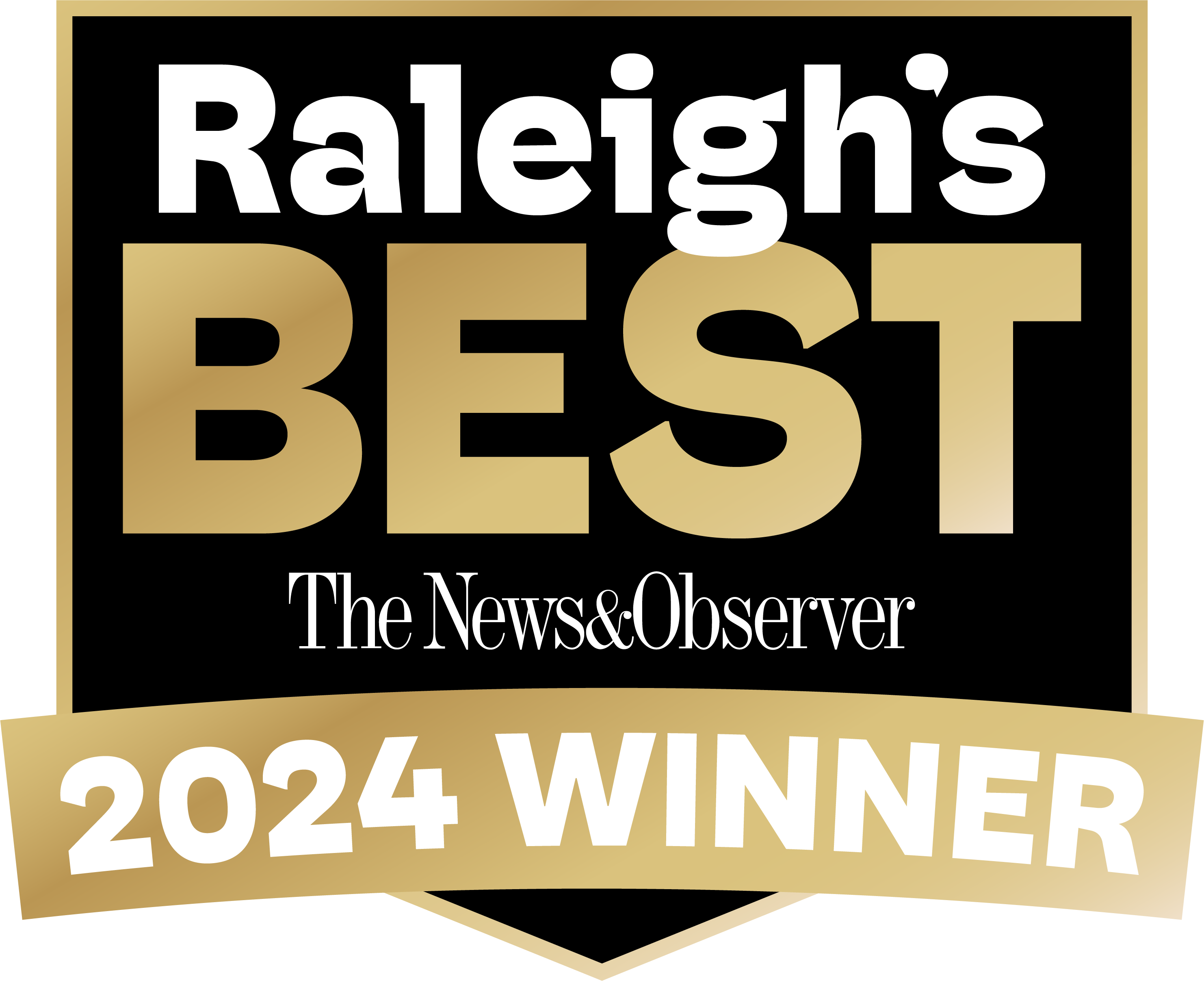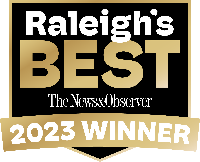Even If You Don't Know Where to Start!
Don't be daunted by the leap into unknown waters! Buying a home for the first time may seem like an overwhelming process, especially when you have no idea where to start, but that's why we're here for you. Learn more about the process of obtaining a mortgage, finding the perfect home, and making an offer, and you'll be on your way to owning your very own home in the Triangle!
Understanding Your Mortgage
First and foremost, let's talk about mortgages. Most buyers need one, and there are a lot of options that vary greatly from lender to lender and from buyer to buyer. This means it's important to understand what you're looking for and talk to a lot of different lenders to ensure you're getting the best deal possible.
Types of Mortgages
There are four basic types of mortgages used by the majority of home buyers.
Conventional Mortgage:
This is the standard loan used by buyers with good to excellent credit who make down payments of at least 10%. However, there are programs that offer options for lower down payments based on buyer credit and location.
FHA Mortgage:
These loans often apply to buyers with lower credit scores, as they offer a down payment as low as 3.5% and lower interest rates. However, FHA mortgages do also require mortgage insurance premiums, which can result in higher overall costs.
VA Mortgage:
All veterans and active military members qualify for VA loans. These offer up to 100% financing, simplified loan approvals, and lower interest rates. They can be much lower than conventional loans.
USDA Mortgage:
These loans are available to buyers in rural or low-density areas and offer up to 100% financing and below-market interest rates. Their ideal buyers are of average means, have lower credit scores, and are buying modest homes. Additionally, because of the government's loose definition of the term "rural," some of the buyers in the smaller communities surrounding the Triangle will qualify for this loan.
What Do Mortgages Include?
There are four main components to a mortgage payment, often abbreviated as "PITI."
Principal:
This is the repayment of the initial amount you borrowed from your lender (in other words, the price of your home).
Interest:
This is a payment to the lender for the money borrowed (and is then added on to the initial price of your home).
Taxes:
Your annual city and county taxes assessed on your property are divided by the number of mortgage payments you make in a year and added into your mortgage.
Insurance:
Your monthly homeowner's insurance payment covers you against various hazards and is added to your mortgage payment.
Calculating Your Monthly Budget
Now that you know what loan options are available to you, what you can expect to pay as a down payment, and what your likely interest rates will be, it's time to determine how much you can afford to pay every month, which will then be used to calculate the price range of your home.
Keep in mind that your mortgage costs will be based both on the price of the home and the CURRENT interest rates. A home's affordability can vary from one day to the next based on the current rates.
Finding a Real Estate Agent in the Triangle
Your agent should be someone you know you can trust, an expert in real estate in your area and neighborhood, and very proficient in working with buyers of your experience.
Find out why 220 Agents is the best real estate team for first-time buyers in Raleigh!
Making an Offer
You found the perfect house, and now it's time for your and your agent to sit down and discuss your offer. It's important to work together to determine a price you can comfortably afford but will also be a realistic offer for the seller to accept and will not be dismissed against any competing offers the seller might receive.
Understanding Your Mortgage
First and foremost, let's talk about mortgages. Most buyers need one, and there are a lot of options that vary greatly from lender to lender and from buyer to buyer. This means it's important to understand what you're looking for and talk to a lot of different lenders to ensure you're getting the best deal possible.
What Will I Pay Upfront?
Earnest Money:
Think of this as your security deposit. It's paid when you submit your offer to show the seller that you are serious. When your offer is accepted, it is applied to your down payment or closing costs.
Down Payment:
This is determined by your loan, or possibly any government programs or assistance you have requested.
Closing Costs:
These are typically low for buyers and represent the fees associated with paperwork and lender charges.
Closing
If everything looks good, it's time to sign the paperwork, make final negotiations and payments, and get your keys!
Review Your Contract
Before you sign any paperwork, it's important that you carefully read over the contract with your agent or lawyer to ensure there are contingencies - that is, if something falls through with your mortgage, you aren't still obligated to buy the home.
Finalize Your Mortgage
Work with your chosen lender to submit your mortgage application, have your home appraised, and review predicted closing costs. There are many costs commonly associated with closing, including attorney fees, title insurance, appraisal fees, home inspection fees, courier fees, government recording fees, and taxes.
Pay, Close, and Get Keys!
It's time to close! Meet with your agent, lender, and the seller to finalize the paperwork, sign your contracts, and pay your down payment and closing costs. Finally - the keys to your new home!




